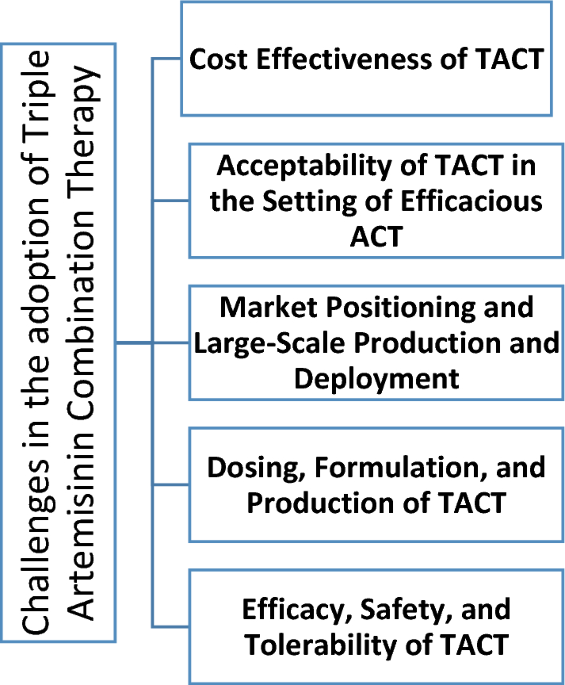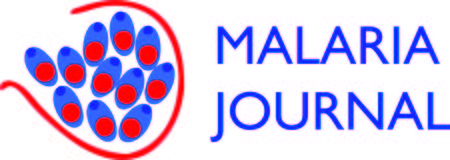Triple artemisinin-based combination therapy (TACT): advancing malaria control and eradication efforts, Malaria Journal
$ 7.99 · 4.9 (129) · In stock

This paper examines the far-reaching implications of Triple Artemisinin-Based Combination Therapy (TACT) in the global battle against malaria. Artemisinin-Based Combination Therapy (ACT) is recognized for its cost-effectiveness, lower likelihood of adverse events, and widespread acceptance by patients and healthcare providers. However, TACT introduces novel dimensions to the fight against malaria that make them a superior choice in several aspects. TACT has been demonstrated to address resistance, offer a broader spectrum of action, reduce the risk of treatment failure, and can be tailored to meet regional needs, strengthening the global effort to combat malaria. However, maximizing these benefits of TACT depends on accessibility, particularly in resource-limited regions where malaria is most prevalent. Collaborative efforts among stakeholders, sustainable pricing strategies, efficient supply chains, and public–private partnerships are essential to ensure that TACT reaches needy populations. Moreover, dispelling prevalent malaria myths through health education campaigns is critical in this endeavour. The paper underscores the significance of collaborative initiatives and partnerships among governments, international organizations, research institutions, acadaemia, pharmaceutical companies, and local communities. Together, these efforts can pave the way for the acceptance, adoption, and success of TACT, ultimately advancing the global goal of a malaria-free world.

PDF) Triple artemisinin-based combination therapy (TACT): advancing malaria control and eradication efforts

Modulation of triple artemisinin-based combination therapy pharmacodynamics by Plasmodium falciparum genotype

Efficacy and Safety Assessment of Three Artemisinin-Based Combination Therapy (Acts) in the Treatment of P. falciparum Malaria in Cameroon
To what extent are the antimalarial markets in African countries ready for a transition to triple artemisinin-based combination therapies?

Strategy to respond to antimalarial drug resistance in Africa

Investigating the efficacy of triple artemisinin-based combination therapies (TACTs) for treating Plasmodium falciparum malaria patients using mathematical modelling

Anopheles arabiensis continues to be the primary vector of Plasmodium falciparum after decades of malaria control in southwestern Ethiopia

PDF) A framework for stakeholder engagement in the adoption of new antimalarial treatments in Africa: a case study of Nigeria

January 2024 Science & Research Report

Preventing antimalarial drug resistance with triple artemisinin-based combination therapies

Malaria Journal Scholars Portal Journals

Protecting future antimalarials from the trap of resistance: Lessons from artemisinin-based combination therapy (ACT) failures - ScienceDirect

Pharmaceutics, Free Full-Text

PDF) In Vitro Confirmation of Artemisinin Resistance in Plasmodium falciparum from Patient Isolates, Southern Rwanda, 2019